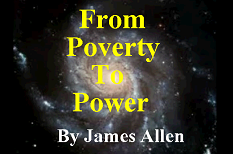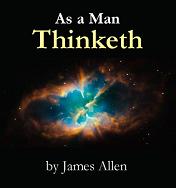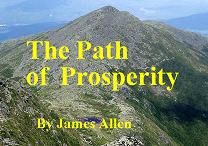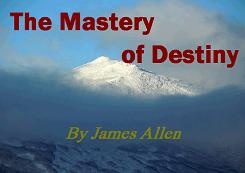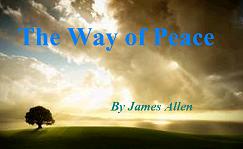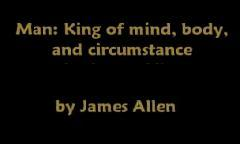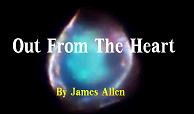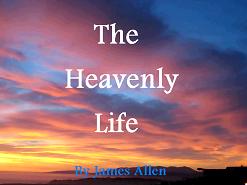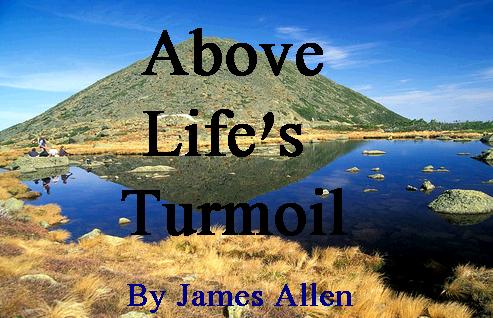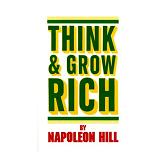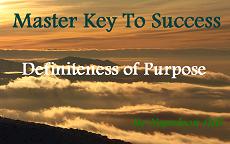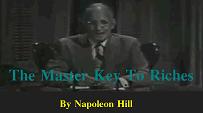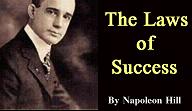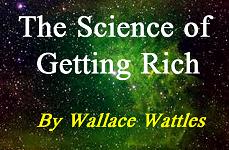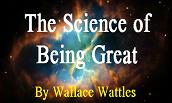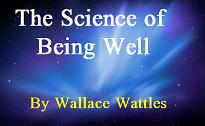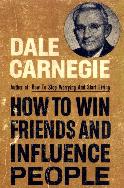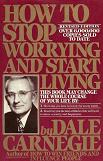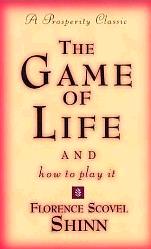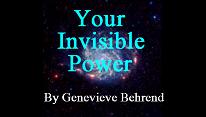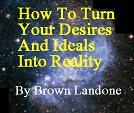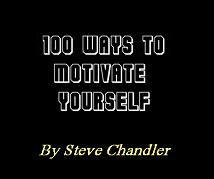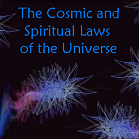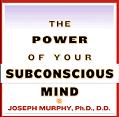New Age Self Help and Motivational Psychology
The most Insightful and Informative New Age Self-Help Videos and Texts. Transpersonal & Motivational Psychology, Personal Development, Self-Actualization and Empowerment, Spiritual Growth and Transformation, Mind Science and New Thought, Universal Laws & Principles, and Mind-Body-Soul Healing.
More Videos About Self Help and Personal Development
Information New Age Self Help & Personal Development
In general, self-help, or self-improvement, is a self-guided improvement—economically, intellectually, emotionally, or spiritually—often with a substantial psychological basis. The hyphenated compound word "self-help" often appeared in the 1800s in a legal context, referring to the doctrine that a party in a dispute has the right to use lawful means on their own initiative to remedy a wrong.
Personal development includes activities that improve awareness and identity, develops talents and potential, enhances quality of life and contributes to the realization of dreams and aspirations. The concept is not limited to self-help but includes formal and informal activities for developing others in roles such as teacher, guide, counselor, manager, life coach or mentor.
Self-Help and Personal Development includes activities such as:
*improving self-awareness
* improving self-knowledge
*building or renewing identity
*developing strengths or talents
*improving wealth
*spiritual development
*identifying or improving potential
*building employability or human capital
*enhancing lifestyle or the quality of life
*improving health
*fulfilling aspirations
*improving social abilities
Self-Actualization (self-awareness, self-motivational, self-realization)
A self-help term often referred to is Self-actualization. Expressing one's creativity, quest for spiritual enlightenment, pursuit of knowledge, and the desire to give to society are examples of self-actualization. Abraham Maslow's theory on psychology and motivation changed the view of human nature from a negative point of view - (man is a limited or conditioned organism) - to a more positive view in which man is motivated to realize his full potential. This is reflected in his hierarchy of needs and in his theory of Self-actualization.
A self-actualizer is a person who is living creatively and fully using his or her potentials. In his studies, Maslow found that self-actualizers share similarities. Whether famous or unknown, educated or not, rich or poor, self-actualizers tend to fit the following profile.
* Efficient perceptions of reality. Self-actualizers are able to judge situations correctly and honestly. They are very sensitive to the fake and dishonest, and are free to see reality 'as it is'.
* Comfortable acceptance of self, others, nature. Self-actualizers accept their own human nature with all its flaws. The shortcomings of others and the contradictions of the human condition are accepted with humor and tolerance.
* Spontaneity. Maslow's subjects extended their creativity into everyday activities. Actualizers tend to be unusually alive, engaged, and spontaneous.
* Task centering. Most of Maslow's subjects had a mission to fulfill in life or some task or problem ‘beyond’ themselves (instead of outside of themselves) to pursue. Humanitarians such as Albert Schweitzer and Mother Teresa are considered to have possessed this quality.
* Autonomy. Self-actualizers are free from reliance on external authorities or other people. They tend to be resourceful and independent.
* Continued freshness of appreciation. The self-actualizer seems to constantly renew appreciation of life's basic goods. A sunset or a flower will be experienced as intensely time after time as it was at first. There is an "innocence of vision", like that of an artist or child.
* Fellowship with humanity. Maslow's subjects felt a deep identification with others and the human situation in general.
* Profound interpersonal relationships. The interpersonal relationships of self-actualizers are marked by deep loving bonds.
Comfort with solitude. Despite their satisfying relationships with others, self-actualizing persons value solitude and are comfortable being alone.
* Non-hostile sense of humor. This refers to the wonderful capacity to laugh at oneself.
* Peak experiences occur more frequently (temporary moments of self-actualization) which are marked by feelings of ecstasy, harmony, and deep meaning. Self-actualization brings a sense of feeling stronger and calmer than ever before, safe, accepted, loved and loving, alive, filled with light, beauty and goodness, and at one with the universe. Life feels fulfilling and meaningful.
Self-Realization
Self-realization is an expression used in Western Esotericism, Spirituality, Eastern religions & Mysticism and Psychology (psycho-analysis, humanistic psychology). Self-realization can be defined as freedom from external coercion, including cultural expectations, political and economic freedom, and so forth. The basic premise of self-realization is that there exists an authentic self which has to be discovered by psychological or spiritual self-striving. Self-realization can be a gradual or instantaneous phenomena depending on the school of thought but in all cases it involves extensive preparation of mind and emotions to recognize self-realization when it occurs.
Self-realization is a maturing of the ego or personality to accept its own evanescence and thus allow space for the true Self to reveal itself. The sun veiled by clouds is an apt metaphor for the Self's apparent absence in our everyday lives. The dissolution of the ego's obsessive, internal pre-occupations with its psycho-somatic complexes frees the psyche's energy to directly experience reality of the world as it is, free of any assumptions.
In Eastern thought such as Buddhism and Hinduism, self-realization is knowledge of the true self beyond both delusion and identification with material phenomena. The concept of a 'separate' self or identity is often dismissed or seen as illusion or delusion. Reality is seen as an undivided whole and self-awakening is the realization of this whole.
Abraham Maslow and Carl Rogers, leaders in the Humanistic Psychology movement, developed the concept of self-actualization and is concerned with psychological growth. It represents the awakening and manifestation of latent potentialities of the human being -for example, ethical, esthetic, and religious experiences and activities. In the Western world the concept of enlightenment has become synonymous with self-realization and awakening the 'true self' which is covered over by social conditioning or false identity.
Aajit K. Das, in the International Journal for the Advancement of Counselling, compared and contrasted Maslow and Rogers' concept of self-actualization with the concept of self-realization in Vedandic Hinduism and the two major schools of Buddhism, Theravada and Mahayana. The author concluded in this paper that the two concepts complement each other.
Western esotericism integrates a broad variety of traditions. It views self-realization as the ultimate goal of a human being, attaining permanent happiness and complete independence and freedom from all worldly bondage. In this view, true happiness is the result of self-realization.
Transpersonal Psychology
Transpersonal psychology is a school of psychology that studies the transpersonal, self-transcendent or spiritual aspects of the human experience. Transpersonal experiences may be defined as "experiences in which the sense of identity or self extends beyond (trans) the individual or personal to encompass wider aspects of humankind, life, psyche or cosmos".
Types of issues considered in transpersonal psychology include: spiritual self-development, self beyond the ego, peak experiences, mysticism and mystical experiences, religious conversion, altered states of consciousness and trance, spiritual practices, and other sublime and/or unusually expanded experiences of living.
A short definition from the Journal of Transpersonal Psychology suggests that transpersonal psychology "is concerned with the study of humanity's highest potential, and with the recognition, understanding, and realization of unitive, spiritual, and transcendent states of consciousness".
The spiritual dimension of the human being is essential to self-growth, along with the emotional, mental and physical self development. Transpersonal psychology developed from earlier schools of psychology including psychoanalysis, behaviorism, and humanistic psychology. The discipline attempts to describe and integrate spiritual experience within modern psychological theory and to formulate new theory to encompass such experience. Carl Jung and Otto Rank are a few notable individuals who explored aspects of the spiritual and transpersonal in their work. Mainstream Western psychology has had a tendency to ignore the spiritual dimension of the human psyche.
The transpersonal perspective spans many research interests. The following list is adapted from the Textbook of Transpersonal Psychiatry and Psychology and includes the contributions of spiritual traditions such as Hinduism, Yoga, Buddhism, Vajrayana, Zen, Taoism, Tantra, Shamanism, Kabbalah, Sufism, Spiritism and Christian mysticism to psychiatry and psychology,; Native American healing; Aging and adult spiritual development; Meditation research and clinical aspects of meditation; Consciousness studies and research; Transpersonal-based approach to educational action research; Psychedelics, Ethnopharmacology, and Psychopharmacology; Parapsychology; Cross-cultural studies and Anthropology; Diagnosis of Religious and Spiritual Problems; Offensive spirituality and spiritual defenses; The treatment of former members of cults; Transpersonal Psychotherapy;Music therapy; Addiction and recovery; Guided-Imagery and Visualization Therapy; Guided Imagery and Music; Breathwork; Dying and near-death experience (NDE); Past life therapy; Ecological survival; Social change; Out-of-body experience.
New Thought, Positive Psychology and Mind Science
New Thought, sometimes known as Higher Thought, promotes the ideas that Infinite Intelligence, or God, is everywhere, spirit is the totality of real things, true human selfhood is divine, divine thought is a force for good, sickness originates in the mind, and "right thinking" has a healing effect.
Although New Thought is neither monolithic nor doctrinaire, in general, modern day adherents of New Thought believe that "God" or "Infinite Intelligence" is "supreme, universal, and everlasting", that divinity dwells within each person, that all people are spiritual beings, that "the highest spiritual principle [is] loving one another unconditionally... and teaching and healing one another", and that "our mental states are carried forward into manifestation and become our experience in daily living".
The New Thought movement is a spiritually-focused or philosophical interpretation of New Thought beliefs. Started in the early 19th century, today the movement consists of a loosely allied group of religious denominations, secular membership organizations, authors, philosophers, and individuals who share a set of beliefs concerning metaphysics, positive thinking, the law of attraction, healing, life force, creative visualization, and personal power. The three major religious denominations within the New Thought movement are Religious Science, Unity Church and the Church of Divine Science. There are many other smaller churches within the New Thought movement, as well as schools and umbrella organizations.
The Human Potential Movement
The Human Potential Movement (HPM) arose out of the milieu of the 1960s and formed around the concept of cultivating extraordinary potential that its advocates believed to lie largely untapped in all people. The movement took as its premise the belief that through the development of "human potential", humans can experience an exceptional quality of life filled with happiness, creativity, and fulfillment. As a corollary, those who begin to unleash this assumed potential often find themselves directing their actions within society towards assisting others to release their potential. Adherents believe that the net effect of individuals cultivating their potential will bring about positive social change at large.
The movement has its conceptual roots in existentialism and humanism. Its emergence is linked to humanistic psychology, also known as the "3rd force" in psychology (after psychoanalysis and behaviorism, and before the "4th force" of transpersonal psychology—which emphasizes esoteric, psychic, mystical, and spiritual development).
New Age Self Help & Personal Development Information
New age Information and resources for self help and personal development, transpersonal and motivational psychology, self-actualization and awareness, spiritual transformation and growth, new thought and mind science, human potential movement and more.
Authentic Happiness & Positive Psychology
Recommended articles, Information and resources on Authentic Happiness and positive psychology in the New Age.
Back to previous page
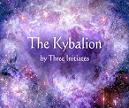 Kybalion by Three Initiates
Kybalion by Three Initiates
The Kybalion is a 1908 book which contains the essence of the teachings of Hermes Trismegistus who is the Greek version ofThoth in Egyptian texts. It was published anonymously by a group or person under the pseudonym of "the Three Initiates"
Ancient Hermetic Philosophy
The book purports to be based upon ancient Hermeticism, though many of its ideas are relatively modern concepts arising from the New Thought movement. The book itself early in reading makes the claim that it makes its appearance in one's life when the time is appropriate and includes variations of material found in the book of Proverbs.
You can read the pdf text version of the Kybalion book here
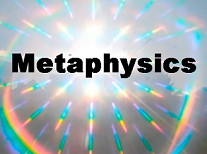 Metaphysics is a traditional branch of philosophy concerned with explaining the fundamental nature of being and the world, and also dealing with First Cause and the Nature of Being.
Metaphysics is a traditional branch of philosophy concerned with explaining the fundamental nature of being and the world, and also dealing with First Cause and the Nature of Being.
Metaphysics For Life
What is GOD? A Metaphysical Perspective
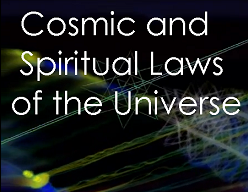 12 Cosmic and Spiritual Laws of the Universe
12 Cosmic and Spiritual Laws of the Universe
The Universe is perfectly balanced by natural and moral laws. When you work within the laws, you can be assured of an eventual positive outcome. When the laws are transgressed, suffering will result.
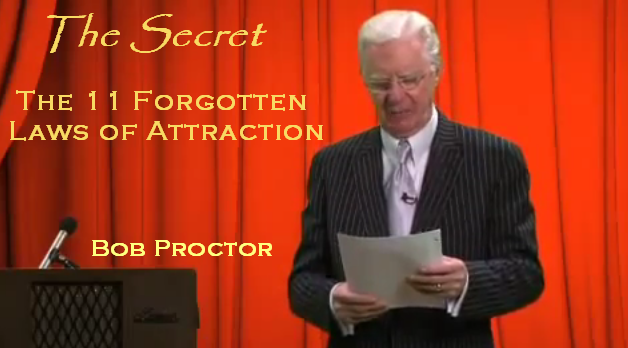 The Secret: The 11 Forgotten Laws of Attraction
The Secret: The 11 Forgotten Laws of Attraction
�The 11 Forgotten Laws That Make The Law of Attraction An Unbreakable Force�. You Are Just Moments Away from Discovering the 11 Forgotten Laws that Makes the Law of Attraction an Unbreakable Force.
[See All Law of Attraction Videos]
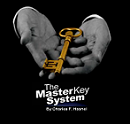 The Master Key System
The Master Key System
The Master Key System is a personal development book by Charles F. Haanel that was originally published as a correspondence course in 1912. Though originally a 24 week correspondence course. Along with "The Science of Getting Rich", by Wallace D. Wattles, the Master Key System is the source of Rhonda Byrne's inspiration for the book and the film "The Secret" (2006).
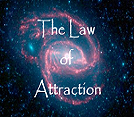 Information about The Law of Attraction and how you can use your thoughts and feelings to manifest the life you desire. Learn about the Science behind how your inner thoughts and emotions manifest what you perceive in the external world, and how everyone is creating their own reality.
Information about The Law of Attraction and how you can use your thoughts and feelings to manifest the life you desire. Learn about the Science behind how your inner thoughts and emotions manifest what you perceive in the external world, and how everyone is creating their own reality.
Watch some of the most popular and unique
Videos about The Law of Attraction
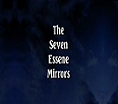 The Seven Essene Mirrors
The Seven Essene Mirrors
From the perspective of the ancient Essenes, every human on the earth is an initiate in the Mystery School that we call Life. Whether they are conscious of it or not, every human will experience in the presence of others mirrors of themselves in that moment. If we have the wisdom to recognize those mirrors, we may accelerate the evolution of emotion and understanding.
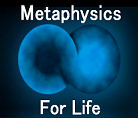 Learn about the history and role of metaphysics in our lives, and why metaphysics has become the new science of our time.
Learn about the history and role of metaphysics in our lives, and why metaphysics has become the new science of our time.
Metaphysics 101
[See All Metaphysics For Life Lessons]
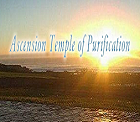 The Ascension Temple of Purification
The Ascension Temple of Purification
The Ascension Temple of Purification new age and spiritual videos, with relaxing music and inspirational messages.
Messages From The Inner Sanctuary
Infinite Merkabah Activation with the Gayatri Mantra
[See All Ascension Temple Videos]
 The Secret Film
The Secret Film
The Secret has traveled through centuries to reach you...
The Secret reveals the single most powerful law in the universe. This is the Secret that lays at the core of the most powerful philosophies, teachings and religions in the world. This is The Secret to prosperity, health, relationships and happiness. This is The Secret to life.
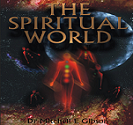 The Spiritual World A lecture by Dr. Mitchell Gibson at the International Conference on Science and Consciousness. The lecture provides a basic introduction to the structure and function of the dimensions of the spiritual world, explains the universal forces that create the dimensional worlds, explores some of the major worlds of the spiritual realm
The Spiritual World A lecture by Dr. Mitchell Gibson at the International Conference on Science and Consciousness. The lecture provides a basic introduction to the structure and function of the dimensions of the spiritual world, explains the universal forces that create the dimensional worlds, explores some of the major worlds of the spiritual realm
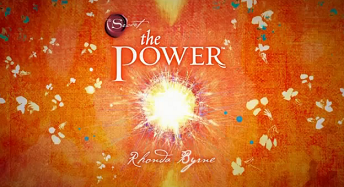 The Power by Rhonda Byrne
The Power by Rhonda Byrne
The Secret revealed the law of attraction. Now Rhonda Byrne reveals the greatest power in the universe -- the power to have anything you want.
In this audiobook you will come to understand that all it takes is just one thing to change your relationships, money, health, happiness, career, and your entire life.
 The Power of Thoughts
The Power of Thoughts
Discover the power that your Thoughts and Emotions have upon you. Learn how you can empower yourself to live in the moment by controlling your thoughts and emotions, and guiding yourself the way that you want to be guided, rather than allowing modern society to tell you how to feel and what to think.
Spirit Science - Thoughts
Spirit Science Video Series
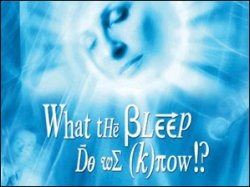 What The #$*!
What The #$*!
Do We Know?!
"What The Bleep Do We Know?!" is a radical departure from convention. It demands a freedom of view and greatness of thought so far unknown, indeed, not even dreamed of since Copernicus. It's a documentary. It's a story. It's mind-blowing special effects. This film plunges you into a world where quantum uncertainty is demonstrated - where neurological processes, and perceptual shifts are engaged and lived by its protagonist - where everything is alive, and reality is changed by every thought.
Thoughts Create Reality - Water Molecules


